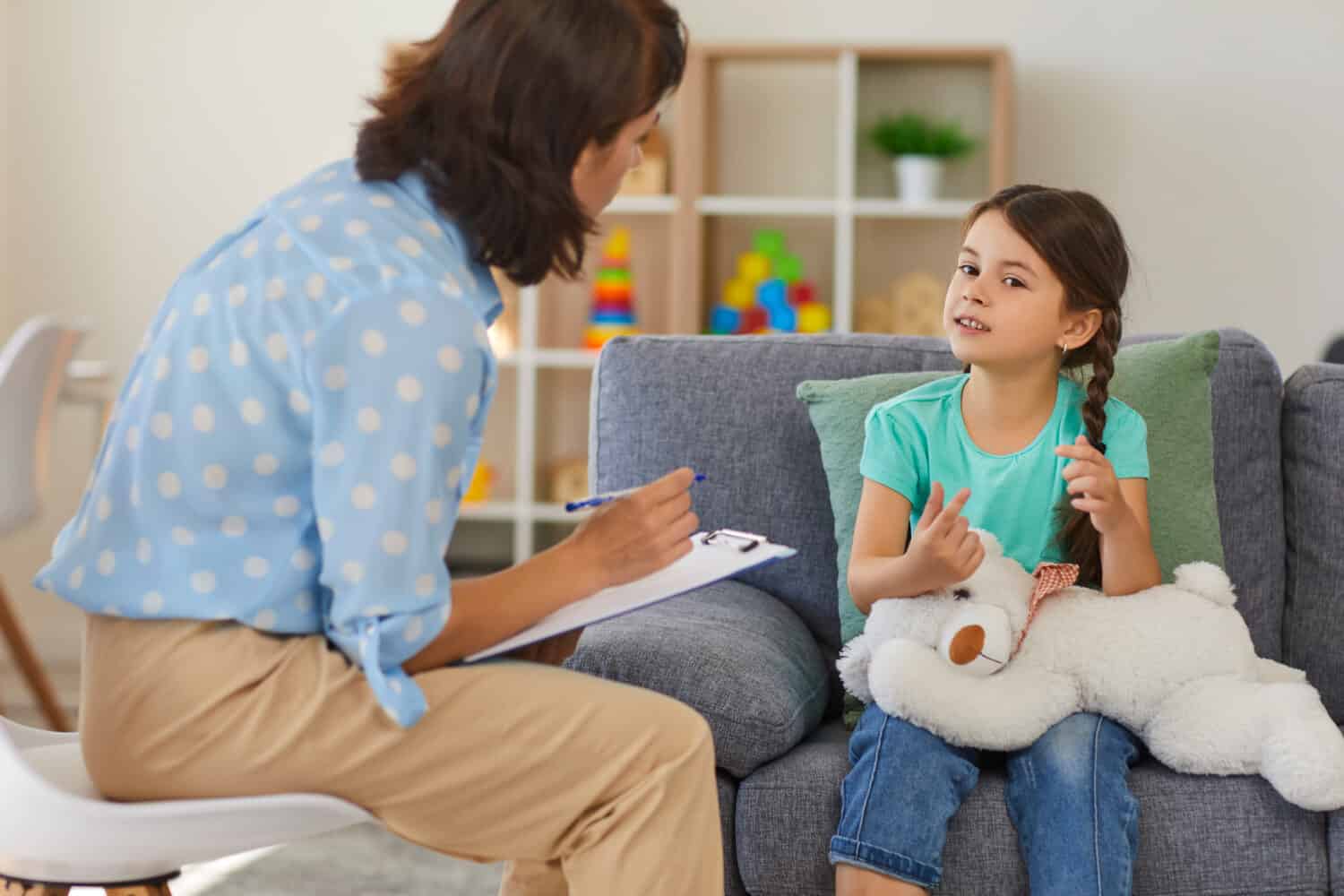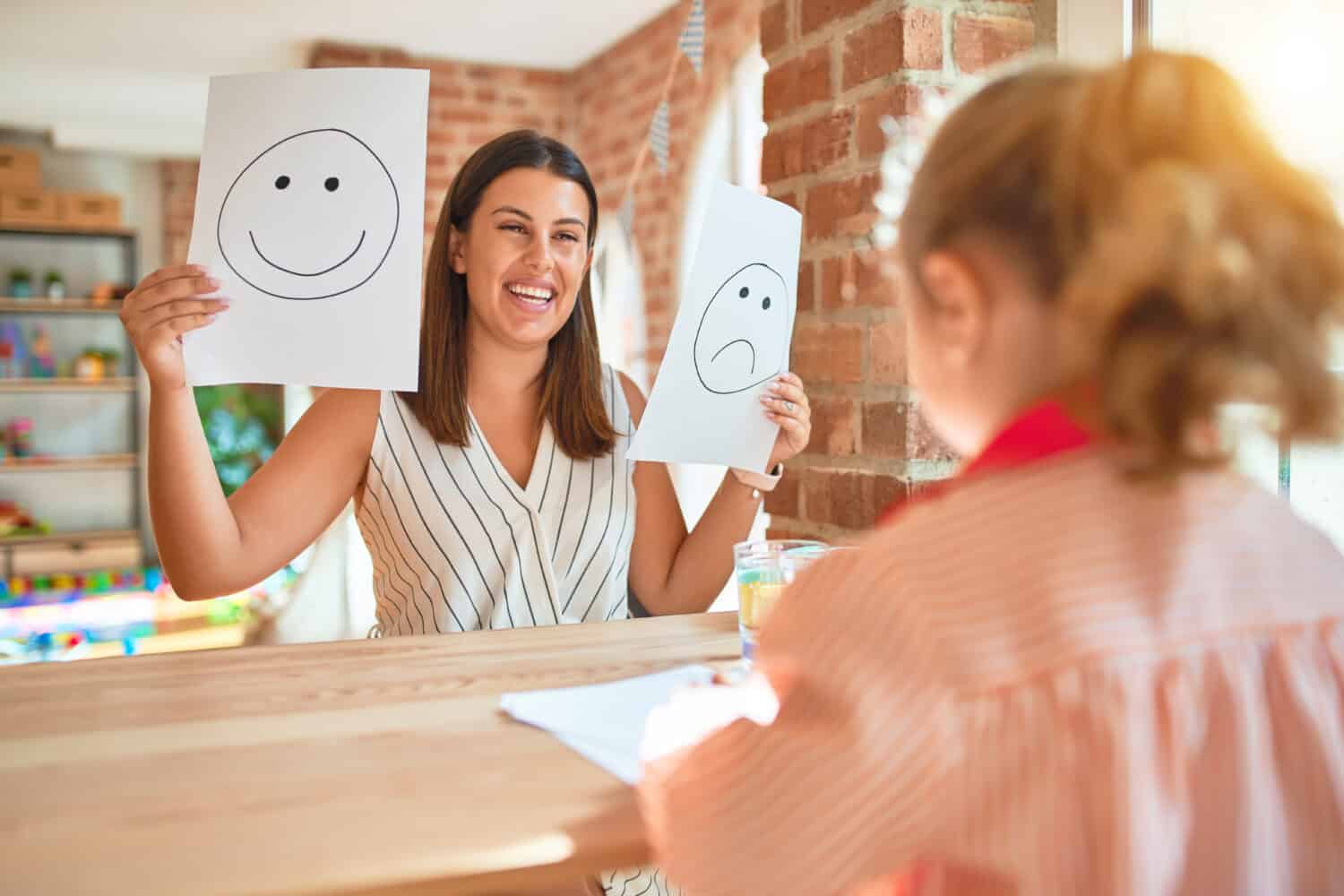While mental health is often a concern for adults, children can also struggle with behavioral and emotional challenges. If you enjoy working with children and you're interested in mental health, you may want to consider a job as a child psychologist. This is a beautiful desire, but it can often be daunting to fully understand what a child psychologist does and what it takes to become one.
In this post, we'll take an in-depth look at a child psychology career including what a day on the job looks like and what steps you must take to receive certification and employment. Whether you're looking to make a career change or simply want to help children and adolescents with issues impacting their daily life, it's important to understand the full scope of child psychology. Let's dive in.
What Does a Child Psychologist Do?

©Studio Romantic/Shutterstock.com
According to the Cleveland Clinic, a child psychologist uses psychological evaluations and other various forms of therapy to help children learn to better cope with life, their relationships, and mental health conditions.
Ultimately, a child psychologist is someone who has been professionally trained to help children and adolescents with their mental health and overall well-being. Child psychologists often help children with several behavioral conditions including mental, emotional, and social. They can also help children in seasons of life involving diverse, moving, and grief, and can help to treat ADHD, anxiety, depression, and autism.
Additionally, within child psychology, there are different fields that you can choose to focus on. They are:
- Adolescent psychology. This type centers around working with pre-teens and adolescents.
- Abnormal child psychology. These psychologists work with children who have experienced trauma or other atypical issues.
- Educational psychology. This focus allows a psychologist to work on improving children's mental health within the educational system by suggesting changes to teachers, classes, and curriculum.
- Clinical child psychology. A clinical child psychologist works within a clinic to assess and treat children and may refer them to a specialist.
- Developmental psychology. This area focuses largely on research and a better understanding of children.
- School psychology. A school psychologist works within a school system as a counselor or therapist to help children in their educational environment.
How to Become a Child Psychologist
Whatever area of focus a child psychologist chooses, he or she must receive the appropriate and required education and licensing. Certainly, becoming a child psychologist is a rewarding career, but it also calls for training, experience, and study. Keep in mind that all of these steps are put in place to guide child psychologists in best utilizing their skills to help children in need.
Let's take a closer look at the 5 steps it takes to become a child psychologist.
1. Receive a Bachelor's Degree
The first step to becoming a child psychologist involves receiving a bachelor's degree. Not all schools offer a specialized degree in child psychology at the bachelor level, so if this is the case for you, be sure to choose a related program like general psychology, behavioral health, or counseling. Also, consider taking electives that are focused on child development or working with children.
To be a child psychologist, you'll need extensive education and a Bachelor's degree is the first stage of the process. You'll want to be sure that you have a degree or take courses that graduate and doctoral programs want to see on your transcripts.
In general, a bachelor's program typically takes four years to complete and includes roughly 120 credit hours. Depending on the curriculum, school, and field of study, these classes can be completed either in person or online.
2. Earn a Master's and Doctorate Degree

©Nirat.pix/Shutterstock.com
Once you've received your bachelor's degree in a related field, you'll need to go on to pursue your Master's degree. This degree can become more focused than your bachelor's degree, allowing you to concentrate on coursework that directly relates to child psychology. These programs normally take roughly 30-40 credits and two years to complete.
A master's degree is all you'll need should you choose to be a mental health counselor, but if you want to become a child psychologist that conducts psychological testing, you'll need a Ph.D. in psychology or a Psy.D. which is a doctor of psychology.
Should you choose to pursue a Ph.D., this program takes an average of 4-7 years to complete. It's also heavily researched based, ending with a dissertation about the student's own findings. It's ideal for students who want to focus on research and academia as well as clinical practice.
Pursuing a Pys.D., on the other hand, includes fewer requirements and focuses more on direct, clinical work with children rather than research. Therefore, a Psy.D. is often a less time-consuming program to complete.
Regardless of which doctorate program you choose to complete, either one will lead you to clinical licensure.
3. Complete an Internship or Practicum
After you've completed your educational requirements, you'll need to focus on completing supervised hours in a true work setting. Each state has a designated set of hours that must be completed. Be sure to check with the state you intend to be licensed in to ensure you complete the necessary amount.
These hours can be obtained in one of three ways. A practicum as part of your course work during your doctoral program, a postdoctoral fellowship, or a work setting. If your doctoral degree does not include a practicum, internship opportunities can be found at the Association of Psychology Postdoctoral and Internship Centers. The APPIC also assists in matching candidates with internship opportunities.
4. Obtain a State License
Now that your education and required hands-on clinic experience are complete, it's time to get licensed! While requirements vary from state to state, every state in the U.S. requires licensure in order to practice child psychology. Requirements to receive a state-issued license generally include a doctoral degree in child psychology and the completion of supervised clinic hours, both of which we've discussed here.
The last portion that must be completed before receiving your state licensure includes a passing score on the Examination for Professional Practice in Psychology (EPPP). This test is administered by the Association of State and Provincial Psychology Boards (ASPPB). It's the most common exam required by states in order to obtain a license.
To fully understand what requirements you'll need to receive your license, be sure to check with your specific state as these can vary from state to state.
5. Pursue Board Certification
Once you receive your license, you're able to practice child psychology in your state. But, if you'd like to take your expertise to another level, you can pursue board certification. This isn't a requirement to becoming a child psychologist, but it does have benefits. It represents to your patients and potential employers that you've completed the necessary requirements to specialize in a certain area of psychological study.
The American Board of Professional Psychology (ABPP) currently handles certification in 15 specialty areas. You can also receive a board certification through the American Board of Clinical Child and Adolescent Psychology (ABCCAP). Both of these certifications have education and exam requirements in order to qualify.
Final Thoughts
Becoming a child psychologist is an extensive yet rewarding goal. If you have an interest in helping children with their mental health and overall well-being, this could be the perfect career for you! While it involves a thorough education and internship hours before licensure, it may be worth it to be able to help the next generation.
Up Next:
- How to Stop Enabling Your Grown Children, In 7 Steps
- How to Explain Death to a Child
- Everything You Need to Know to Understand Bullying in Schools
The image featured at the top of this post is ©Krakenimages.com/Shutterstock.com.
